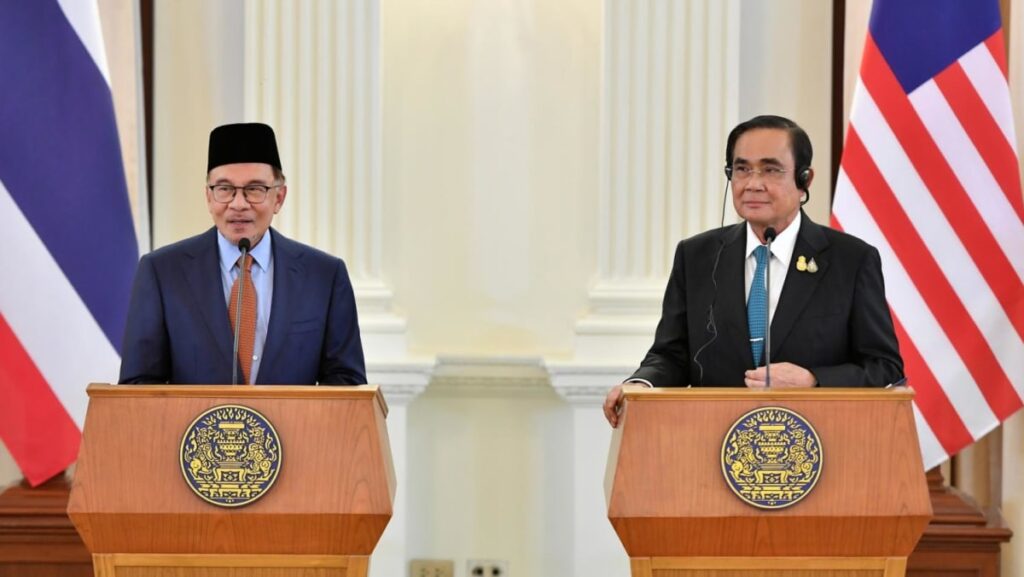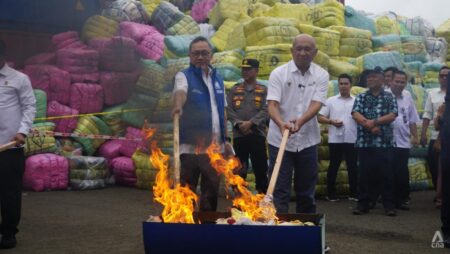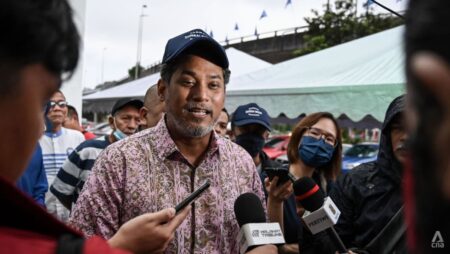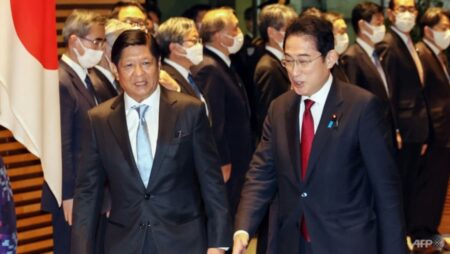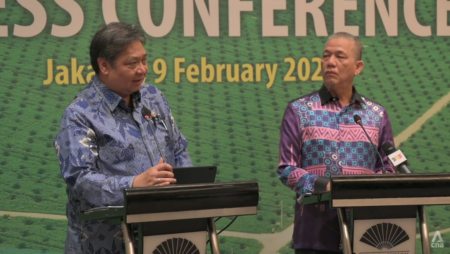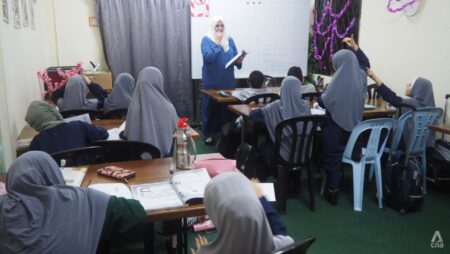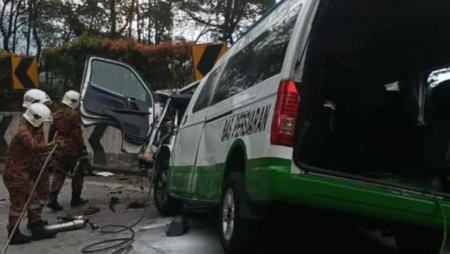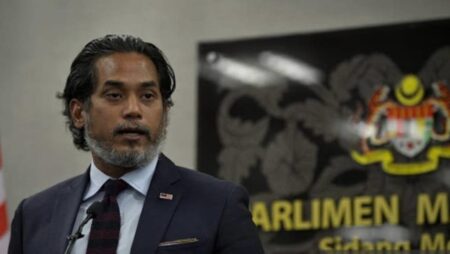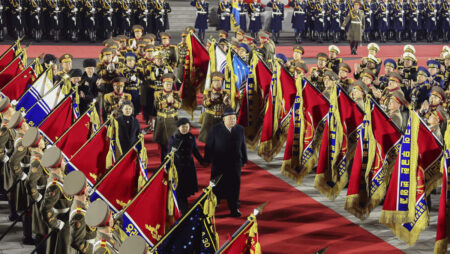BANGKOK: Malaysian Prime Minister Anwar Ibrahim pledged to “do whatever is required and necessary” to facilitate the peace process in Thailand’s conflict-ridden south during his official visit to the neighbouring country on Thursday (Feb 9).
Mr Anwar expressed concern over armed conflicts in Thailand’s southern border provinces near northern Malaysia and promised to assist with the peace process.
“I come here with a very clear, categorical message that the Government of Malaysia will not condone any sort of violence to resolve any conflict,” he said during a joint press conference with his Thai counterpart Gen Prayut Chan-o-cha at the Government House in Bangkok.
“We will exercise our right as friends, as family members – within both countries, Malaysia and Thailand, and ASEAN – to express our concern, whilst acknowledging the south of Thailand is purely an internal issue within Thailand, but it’s our duty as good neighbors and family to do whatever is required and necessary to facilitate the process,” he added.
Thailand and Malaysia also agreed to appoint a facilitator, according to Mr Anwar. He ensured that there would be a solution to the lack of trust, and that issues of religion, culture and language will be addressed.
Thailand’s far south is home to the old Malay state of Patani, a formerly prosperous empire in the northern Malay peninsula before the occupation by Thailand – then known as Siam – in the 18th century.
Since then, several separatist movements have been formed to attempt to liberate the region from what the militants regard as unjust governance of the Thai state.
On Thursday, the two prime ministers stressed the importance of development in Southeast Asia and reaffirmed their commitment to further strengthen bilateral cooperation on various fronts.
These include border area development and connectivity, trade and investment, as well as regional peace and stability.
“Importantly, both Datuk Seri Anwar and I recognised the importance of developing the area along the Thai-Malaysia border into a pillar of mutual wealth so that our joint border area becomes a golden land that is peaceful,” said Thai Prime Minister Prayut.
Both leaders also witnessed the signing of several memorandums of understanding between the two countries, which cover their collaboration in renewable energy, power generation, digital economy and interconnectivity.
THAILAND’S SOUTHERN INSURGENCY
Generations of civilians in southern Thailand have been trapped in decades of deep-rooted conflicts and armed violence, which were reignited in 2004.
The area has been affected by more than 20,000 violent incidents ranging from bombings to gun attacks, according to Pattani-based conflict monitoring group Deep South Watch (DSW).
During the press conference, Mr Anwar expressed his optimism that the conflicts in Thailand’s southern border can be resolved through investments, trade and development.
“It is unfortunate because these small skirmishes have led to a lot of tension, some sort of resentment and distrust. So, we will have to appeal to all forces – both in Thailand and in the south, or even some in Malaysia – to understand and appreciate that peace must be a paramount consideration,” said Mr Anwar.
“I want to start with some element of trust between us, and only through this, we can try and resolve these outstanding problems.”
Besides bilateral cooperation, the two prime ministers also discussed the situation in Myanmar, including its refugees.
“There is very little we can do except to continue this so-called constructive engagement with the Myanmar junta,” said Mr Anwar.
“On humanitarian concerns, we do address them. But we will, of course, suggest ASEAN takes coherent, concerted action together as a region, as a regional body,” he added.
The Malaysian prime minister is in Thailand on an official visit until Feb 10.
Source: CNA







